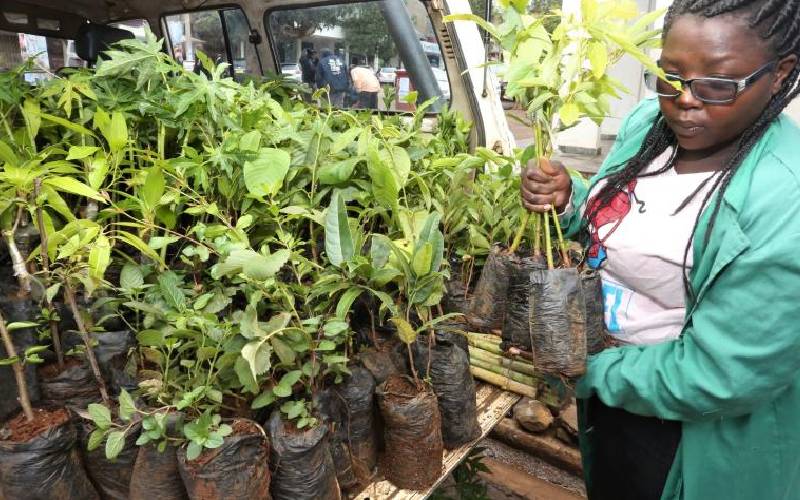×
The Standard e-Paper
Kenya’s Boldest Voice

A woman markets her seedlings near bunge la wana nchi area in Eldoret.[Peter Ochieng,Standard]
Kenya’s drive to plant trees to increase forest cover to 10 per cent is a boon for seedling farmers. And many have made a kill.